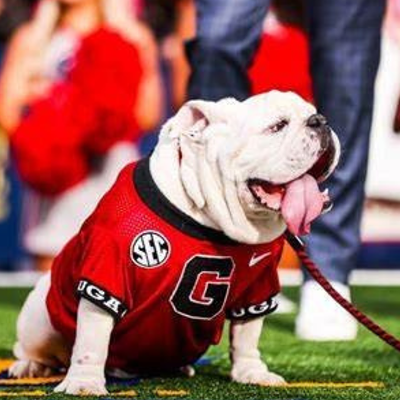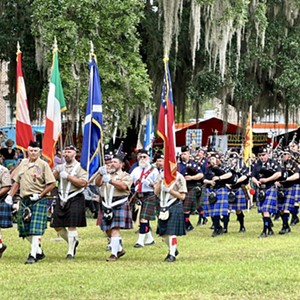Enjoying the spotlight
[
{
"name": "Air - MedRect Combo - Inline Content 1",
"component": "14680855",
"insertPoint": "7",
"requiredCountToDisplay": "5",
"parentWrapperClass": "fdn-ads-inline-content-block"
},{
"name": "Air - MedRect Combo - Inline Content 2",
"component": "14680856",
"insertPoint": "15",
"requiredCountToDisplay": "9",
"parentWrapperClass": "fdn-ads-inline-content-block"
},{
"name": "Air - SVP - Leaderboard - Inline Content - 2",
"component": "16852291",
"insertPoint": "10",
"requiredCountToDisplay": "10",
"parentWrapperClass": "fdn-ads-inline-content-block"
},{
"name": "Air - SVP - Leaderboard - Inline Content - 3",
"component": "16852292",
"insertPoint": "20",
"requiredCountToDisplay": "18",
"parentWrapperClass": "fdn-ads-inline-content-block"
},{
"name": "Air - SVP - Leaderboard - Inline Content - 1",
"component": "16852290",
"insertPoint": "25",
"requiredCountToDisplay": "22",
"parentWrapperClass": "fdn-ads-inline-content-block"
}
]
Left-handed pitcher Pierre-Luc Marceau was not happy on June 6 of this year when he learned he was being transferred from the Brevard County Manatees to the Savannah Sand Gnats.
To him it was a demotion from the Montreal Expos High-A affiliate in Brevard to the Low-A Sand Gnats. Hed been at Brevard the whole 2004 season, and didnt relish the idea of returning to his 2003 home.
He knew he was capable of pitching better than he had for the previous month. Marceau was having trouble with his mechanics. His pitching coach wanted him to throw in a way that was vastly different than his accustomed motion, and it had caused his concentration and confidence to waver. But hed played here before, and had a lot of respect for Sand Gnats pitching coach Ricky Bones.
Hes been back here for almost a month now, and still wants to return to Melbourne, Florida and the Manatees. But he is happier than he was in June, partly because Bones has renewed his self-confidence and partly because he has been playing lots of golf with his good friend Beth Jarrett (the Sand Gnats trainer).
I like the course down by the airport- it isnt too hard, the layout is unusual, and its really scenic, said Marceau.
And like most of the Sand Gnats, Marceau loves playing on Thirsty Thursday.
It is so much fun to play when there is a crowd. I like when they make lots of noise, even if they are cheering for the other team or booing at us. Even a mean crowd is better than a quiet crowd. It really seems like a baseball game on those nights.
The catchers here suit him as well. He has to be a big guy -- pitchers need a good target. And the catcher needs to be my best friend. He should know what pitches I throw, what upsets me, what pitches the batter hits.
Gnats catchers Luis Apodaca and Salomon Manriquez are both huge guys (both are close to 200 lbs.), and both study endlessly to prepare for games.
Most of all, though, he is happy to have time with Ricky Bones. Ricky knows me really well. He knows what I am capable of, and he knows how to talk to me and listen to me.
Ricky has him working on the fundamentals of pitching-where to place his fingers, how his arm moves -- and it has helped him relax. He is throwing more strikes and having more fun. And as much as he loves Savannah and the Sand Gnats, he is beginning to believe hell be moving up to Brevard again.
More reasons to love baseball:
Baseball is better than life -- its fair!" (Robert DeNiro in The Fan)
The Infield Fly Rule -- An infield fly is a fair fly ball that can be caught by an infielder with ordinary effort when there are two or three runners on base, before there are two outs. When it seems apparent that a batted ball will be an Infield Fly, the umpire has to call "Infield Fly" for the benefit of the runners. The ball is alive and runners can choose to run at the risk of the ball being caught, or to re-tag the base and advance after the ball is touched, the same as on any fly ball. If on an infield fly rule, the fielder intentionally drops a fair ball, the ball remains in play. This prevents the infielders from intentionally dropping a fly so that they can turn a double play rather than take the single out.
Sacrifice Bunt -- A hit in which a bunted ball results in one or more runners advancing and the batter being put out at first base.
Sacrifice Fly -- A fly ball that is caught to retire the batter-runner but allows another player to score. And the best part is that a sacrifice doesnt count against the batters batting average!
To him it was a demotion from the Montreal Expos High-A affiliate in Brevard to the Low-A Sand Gnats. Hed been at Brevard the whole 2004 season, and didnt relish the idea of returning to his 2003 home.
He knew he was capable of pitching better than he had for the previous month. Marceau was having trouble with his mechanics. His pitching coach wanted him to throw in a way that was vastly different than his accustomed motion, and it had caused his concentration and confidence to waver. But hed played here before, and had a lot of respect for Sand Gnats pitching coach Ricky Bones.
Hes been back here for almost a month now, and still wants to return to Melbourne, Florida and the Manatees. But he is happier than he was in June, partly because Bones has renewed his self-confidence and partly because he has been playing lots of golf with his good friend Beth Jarrett (the Sand Gnats trainer).
I like the course down by the airport- it isnt too hard, the layout is unusual, and its really scenic, said Marceau.
And like most of the Sand Gnats, Marceau loves playing on Thirsty Thursday.
It is so much fun to play when there is a crowd. I like when they make lots of noise, even if they are cheering for the other team or booing at us. Even a mean crowd is better than a quiet crowd. It really seems like a baseball game on those nights.
The catchers here suit him as well. He has to be a big guy -- pitchers need a good target. And the catcher needs to be my best friend. He should know what pitches I throw, what upsets me, what pitches the batter hits.
Gnats catchers Luis Apodaca and Salomon Manriquez are both huge guys (both are close to 200 lbs.), and both study endlessly to prepare for games.
Most of all, though, he is happy to have time with Ricky Bones. Ricky knows me really well. He knows what I am capable of, and he knows how to talk to me and listen to me.
Ricky has him working on the fundamentals of pitching-where to place his fingers, how his arm moves -- and it has helped him relax. He is throwing more strikes and having more fun. And as much as he loves Savannah and the Sand Gnats, he is beginning to believe hell be moving up to Brevard again.
More reasons to love baseball:
Baseball is better than life -- its fair!" (Robert DeNiro in The Fan)
The Infield Fly Rule -- An infield fly is a fair fly ball that can be caught by an infielder with ordinary effort when there are two or three runners on base, before there are two outs. When it seems apparent that a batted ball will be an Infield Fly, the umpire has to call "Infield Fly" for the benefit of the runners. The ball is alive and runners can choose to run at the risk of the ball being caught, or to re-tag the base and advance after the ball is touched, the same as on any fly ball. If on an infield fly rule, the fielder intentionally drops a fair ball, the ball remains in play. This prevents the infielders from intentionally dropping a fly so that they can turn a double play rather than take the single out.
Sacrifice Bunt -- A hit in which a bunted ball results in one or more runners advancing and the batter being put out at first base.
Sacrifice Fly -- A fly ball that is caught to retire the batter-runner but allows another player to score. And the best part is that a sacrifice doesnt count against the batters batting average!





























